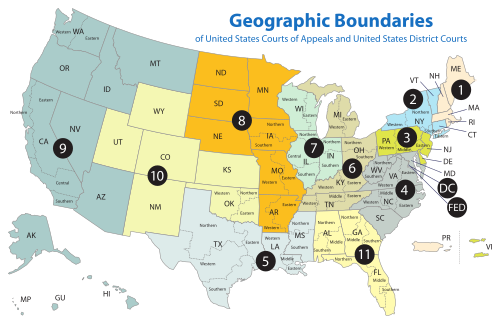External links
| Courts of appeals | |
|---|---|
| District courts |
|
| Specialty courts | |
| Territorial courts | |
| Extinct courts | |
| Note | American Samoa does not have a district court or federal territorial court; federal matters there go to the District of Columbia, Hawaii, or its own Supreme Court. |
This article related to the politics of the United States is a stub. You can help Wikipedia by expanding it. |
